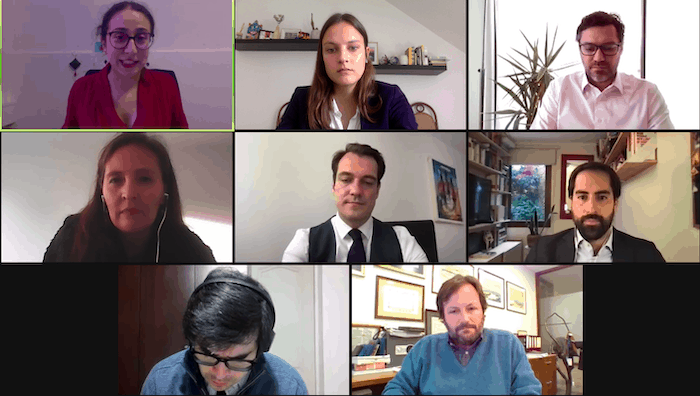The webinar built upon the Foundation’s previous activities and brought together representatives of prominent Chilean think tanks and universities
On 4 June 2021, the Max Planck Foundation convened the second webinar in a three-part public webinar series focusing on the details of the rules of procedure of the Chilean Constitutional Convention. The event was attended by representatives from Horizontal and Rumbo Colectivo – key think tanks working on this topic – and academics from the Universidad Autónoma, Universidad Católica, and Universidad de Chile.
The webinar specifically examined the process through which a constitutional text might be drafted by the Convention and methods for building consensus and breaking deadlocks between Convention’s members. The event took the loose form of a debate starting with Javiera Ascencio from Rumbo Colectivo presenting the detailed drafting and negotiating process proposed by the organisation. This was followed by Sergio Verdugo speaking in his role as Associate Professor at the Universidad del Desarrollo, suggesting a number of theoretical means through which agreement and negotiation within the Convention could be fostered. He is also a collaborator with Horizontal. Following this, Pablo Contreras (Associate Professor: U. Autónoma), Victor Manuel Avilés (Associate Professor: U. de Chile), and Gonzalo Candia (Assistant Professor: U. Católica) responded to these proposals, highlighting which aspects they supported and why which additional questions these proposals raised and proposing alternative ideas where they deemed this necessary.
The events in this series are aimed at advancing the public debate around the procedural arrangements of the Convention. To this end, the public was invited to ask all participants questions. This prompted robust discussions about topics such as the possible mandate and composition of internal commissions including a Harmonisation and Review Commission, the means through which the public, particularly indigenous groups, might be consulted throughout the drafting process, and the question of whether the drafting process ought to be linear or more dynamic.
This webinar follows the first in this series which addressed the internal composition of the Convention. The final webinar in this series will explore, in greater detail, the means through which public participation in the constitution-making process may be fostered. This webinar will take place later this month. It formed part of the Foundation’s project entitled “Supporting Chile’s Constitution Making Process”, funded by the German Federal Foreign Office.

